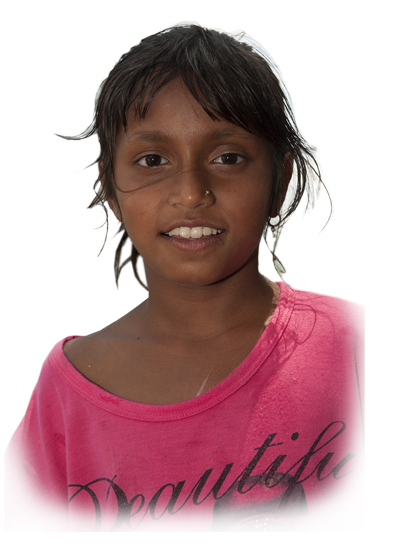Indira Nominated for World’s Children’s Prize 2014
Posted on 30 October 2014.
Indira Ranamagar has been nominated for the 2014 World’s Children’s Prize for her 20-year struggle for prisoners’ children in Nepal.
Indira grew up in extreme poverty and had to fight to be able to go to school. Even as a young girl she knew that she wanted to help other people who had hard lives.
Indira has built up an organisation called Prisoners Assistance Nepal (PANepal), which has rescued over a thousand children from cramped, dirty prisons. The children end up there because their parents have been sentenced to time in prison and nobody else is able to take care of them. When Indira rescues children, they are taken to one of PA’s three children’s homes. There they get an education and a safe childhood. They also learn agricultural skills and how to take care of animals. PANepal runs a children’s home called Jankuri outside Kathmandu. Children from the surrounding villages are allowed to attend the school too.
Indira lobbies politicians and authorities to make prisons more humane. Many prisoners come from very poor families. Indira and PANepal teach them to read and write, so that they can manage better, and take better care of their children when they are released from prison.
Indira and Prisoners Assistance Nepal:
• Run three children‘s homes, two schools, and youth programs on organic agriculture, arts and crafts, and more.
• Support girls in villages to enable them to go to school. They are also given bikes, since they often have a long journey to get to school.
• Search for relatives and support them to take care of the children.
• Make sure that children get a chance to visit their parents in prison.
• Run programs allowing children to go to school during the day and stay with their mothers in prison at night. They also educate mothers in prison up to Year 5 level and give them vocational training.
• Support prisoners who have been released, so that they can be reunited with their children.
• Speak out for the weakest in society and fight for prisoners – especially women and their children – to be treated in a fair and humane way.
This is Roshani’s story – she’s just one of the many children that Indira has helped through PA (NEPAL): The following article is taken from The World’s Childrens’ Prize website https://worldschildrensprize.org/about-us

Roshani’s first night sleeping on the street. She holds her breath, listening. What’s that sound?
It’s only a few hours since the police banged on the door of Roshani’s home. They took her mother and father.
The police said that her mother and father were going to prison. Roshani doesn’t know why. There was nobody to take care of the children, so Roshani’s two younger brothers had to go to prison with their parents.
Roshani’s neighbours were meant to take care of her. But when she gets to their door, they don’t let her in. They have locked the door. She knocks and knocks. And shouts. Night falls. Shadows move in the darkness. Threatening noises. Roshani, who is six, curls up on the pavement. Her heart is in her mouth. There are ghosts everywhere. It feels as though they are creeping around her. She can’t sleep.
Then next day Roshani is still on the street. She has nowhere to go. But somebody sees her and calls the police. They pick Roshani up and take her to her mother – in jail.
Better than living on the street
“I was so happy,” explains Roshani. “All I wanted was to be with my mother and father.”
At first she got to live with her mother – there were eleven people in their small cell.
“The prison officers would shout and yell at us, and it was cramped,” says Roshani.
But it was still much better than living alone on the street.
A few weeks later the family were moved to another prison. Roshani’s father came to the men’s prison and the rest of the family to the women’s prison.
“On Saturdays we were allowed to go to the men’s side and visit my father. He used to keep some of his rice for us every week.”
There were lots of children to play with in the prison. The building was like a labyrinth, with stairs and small rooms everywhere. There were no doors between the rooms.
“We played hide and seek there,” recalls Roshani.
Going to school
Indira Ranamagar visited the prison often. She gave out food and clothes, and taught the prisoners to read and write. She also took care of children from the prison by taking them to one of her children’s homes.
When Roshani and her brothers had been in prison for one year, Indira took them to her children’s home outside Kathmandu. They live there now, with over seventy other children, in a large house in the countryside. They go to school and learn agricultural skills. The children also take care of the animals – 24 goats, a few dogs and one cow.
“I love being here,” says Roshani, “although I do really miss my mother and father. But in a few days’ time I’m going to the prison to visit them.
Text: Eva-Pia Worland
Photo: Johan Bjerke